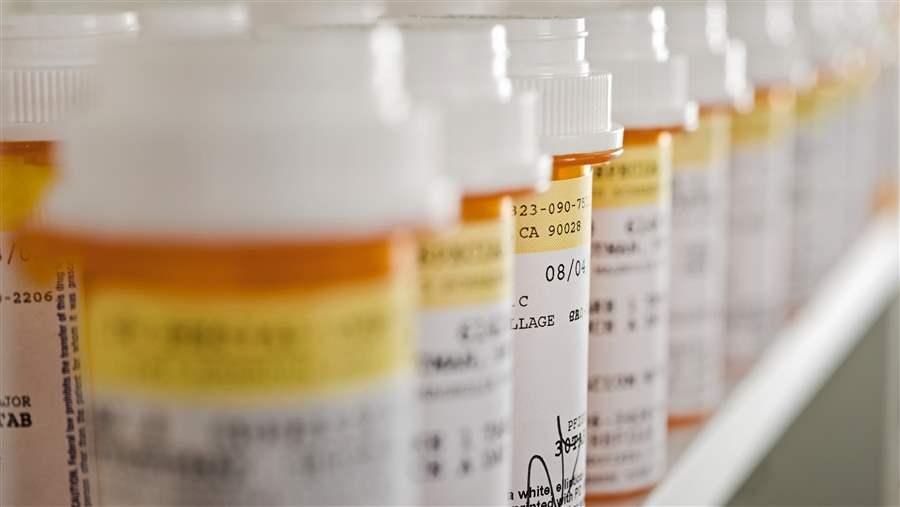
The decision of the federal government to reduce drug importation from 60 to 40 percent came as a welcome development to stakeholders in the health sector, especially because it would boost local production and open up the Nigerian pharmaceutical landscape to limitless opportunities for growth and innovation. However, in spite of the laudability of that decision, the federal government seemed not to have consulted with the real stakeholders – pharmacists, who, by the nature of their calling, remain the custodians of drugs all over the world.
The federal government must understand that there are technical intricacies involved in matters concerning drug manufacturing, importation and distribution within a given geographical space. As such, experts, in the persons of pharmacists and pharmaceutical scientists, and not politicians, should be saddled with the responsibility of developing a roadmap towards the actualisation of that goal. Unless things are done properly, the entire process could be hijacked by reckless politicians, as has always been the case with most great ideas in Nigeria.
President Bola Ahmed Tinubu should have engaged with the leadership of the Pharmaceutical Society of Nigeria (PSN), the Pharmacy Council of Nigeria (PCN), the National Agency for Food and Drug Administration and Control (NAFDAC), the National Institute for Pharmaceutical Research and Development (NIPRD) and the National Association of Pharmacists and Pharmaceutical Scientists in the Americas (NAPPSA). These real stakeholders can advise the president on how to execute and actualise the idea of import reduction in a way that it will boost local manufacturing, stimulate healthy competition among local manufacturers and make quality drugs available to the poorest and most vulnerable groups in Nigeria.
NAPPSA, populated by Nigerian pharmacists in the Americas, has a huge role to play, going by its contributions to the overall diaspora remittances to Nigeria. In fact, more remittances can come from this group, if the federal government makes the local business environment more conducive for investors. Many Nigerian pharmacists in the Americas wish to establish industries in Nigeria but are scared of the security and somewhat unstable business climate in Nigeria.
Professor of Pharmaceutical Chemistry and CEO of Bloom Public Health, Professor Chimezie Anyakora, who has been championing Nigeria’s self-sufficiency in local manufacturing, in conjunction with different pharmaceutical groups in Nigeria and beyond, expressed his optimism about government’s decision, albeit with a caveat. According to Anyakora, unless government is sincerely committed to actualising the import reduction idea as a policy decision, not much should be expected.
“Government’s decision will boost local manufacturing. The value-chain will also be impacted with more investments and with more gaps to fill. Government must also make some deliberate efforts towards protecting the interests of investors. Above all, their sincerity and commitment towards the workability of this policy remains paramount”, he added.
Recently, precisely in June 2023, Bloom Public Health, in conjunction with the Federal Ministry of Health, the World Bank and NIPRD, hosted local manufacturers in a capacity-building workshop to equip them with the appropriate knowledge and skills required for the sustenance of the culture of excellence in pharmaceutical manufacturing in an era of high competitiveness and international best practice.
It is important to note here that in terms of preparedness, Nigerian pharmacists and pharmaceutical scientists are ready to work with the federal government to better the lot of local manufacturers. This is reflected in the level and quality of engagements and collaborations that have been going on in the Nigerian pharmaceutical landscape. The only challenge is that the federal government might end up surrounding itself with the wrong people due to political patronage. We hope President Tinubu’s style will be a radical departure from the usual tea party in high places.
As the PSN President, Professor Cyril Usifoh, has recently observed during a television interview, Nigeria needs to produce its medicines; and there is no better way of expressing the readiness to do so than the decision of Tinubu’s government to cut down drug importation. According to Usifoh, the COVID-19 experience has shown that without the capacity to produce our own drugs, the country can be overwhelmed by medical emergencies at any time. While harping on the need to ensure medicine security, Usifoh believes that the federal government should have first consulted with stakeholders before arriving at the decision to cut down on drug importation.
I will advise the PSN president and other pharmacists and pharmaceutical scientists to take the bull by its horn and make the president see the reason he must have them driving the process of this policy decision. As the Holy Writ says, “…the kingdom of God suffereth violence and the violent taketh it by force.” (Mathew 11:12)













